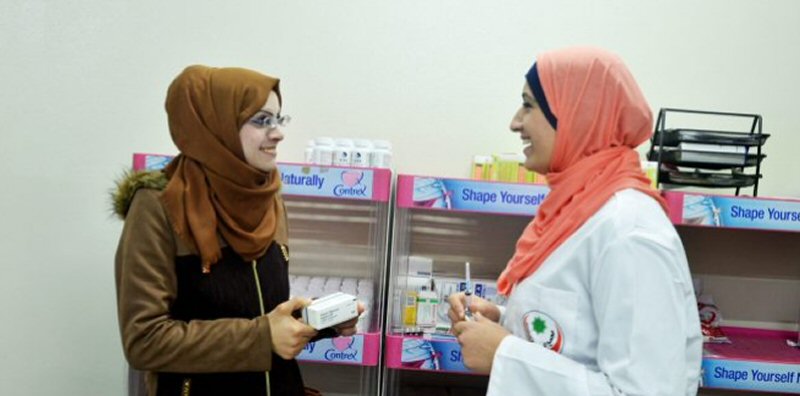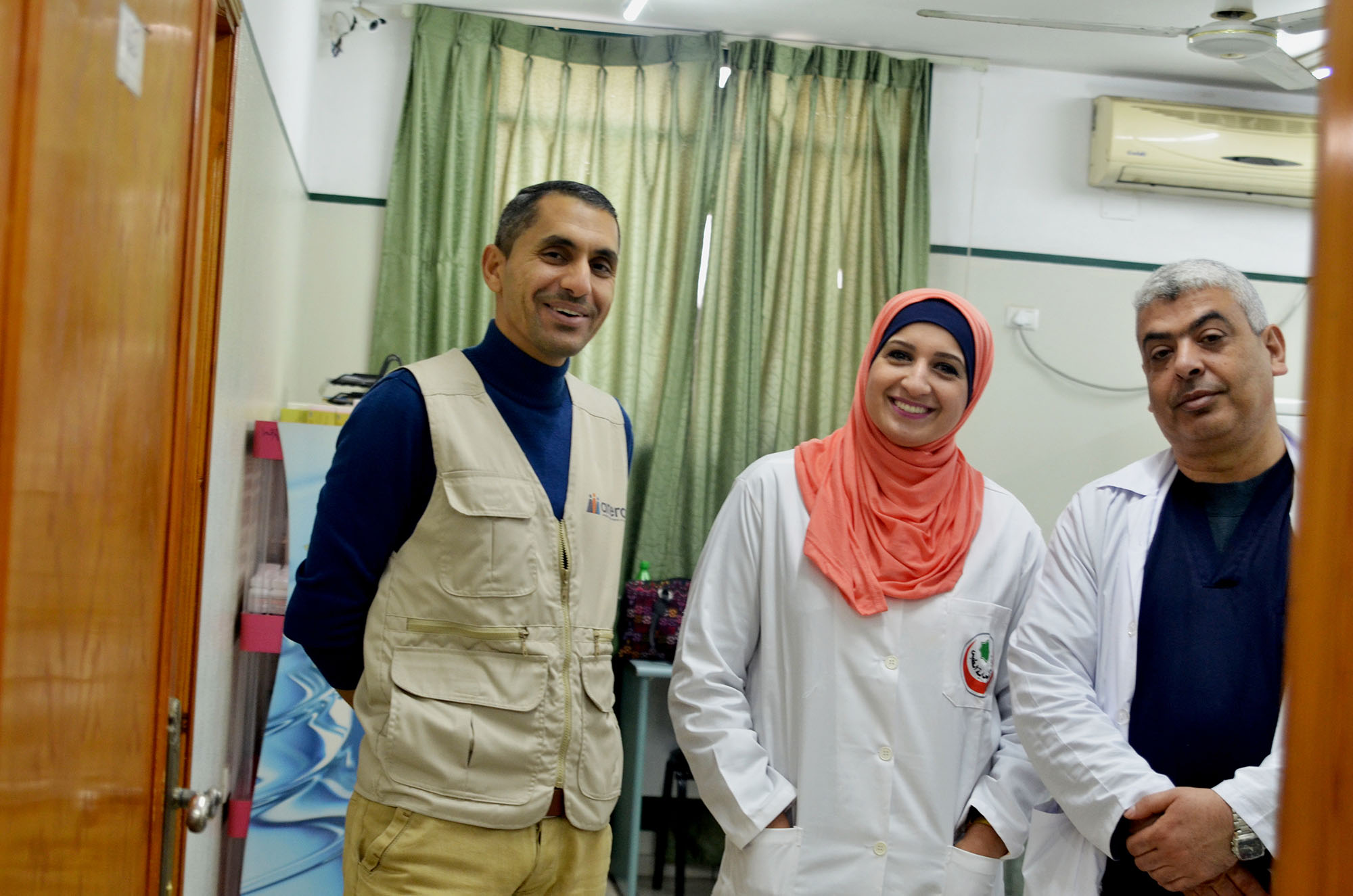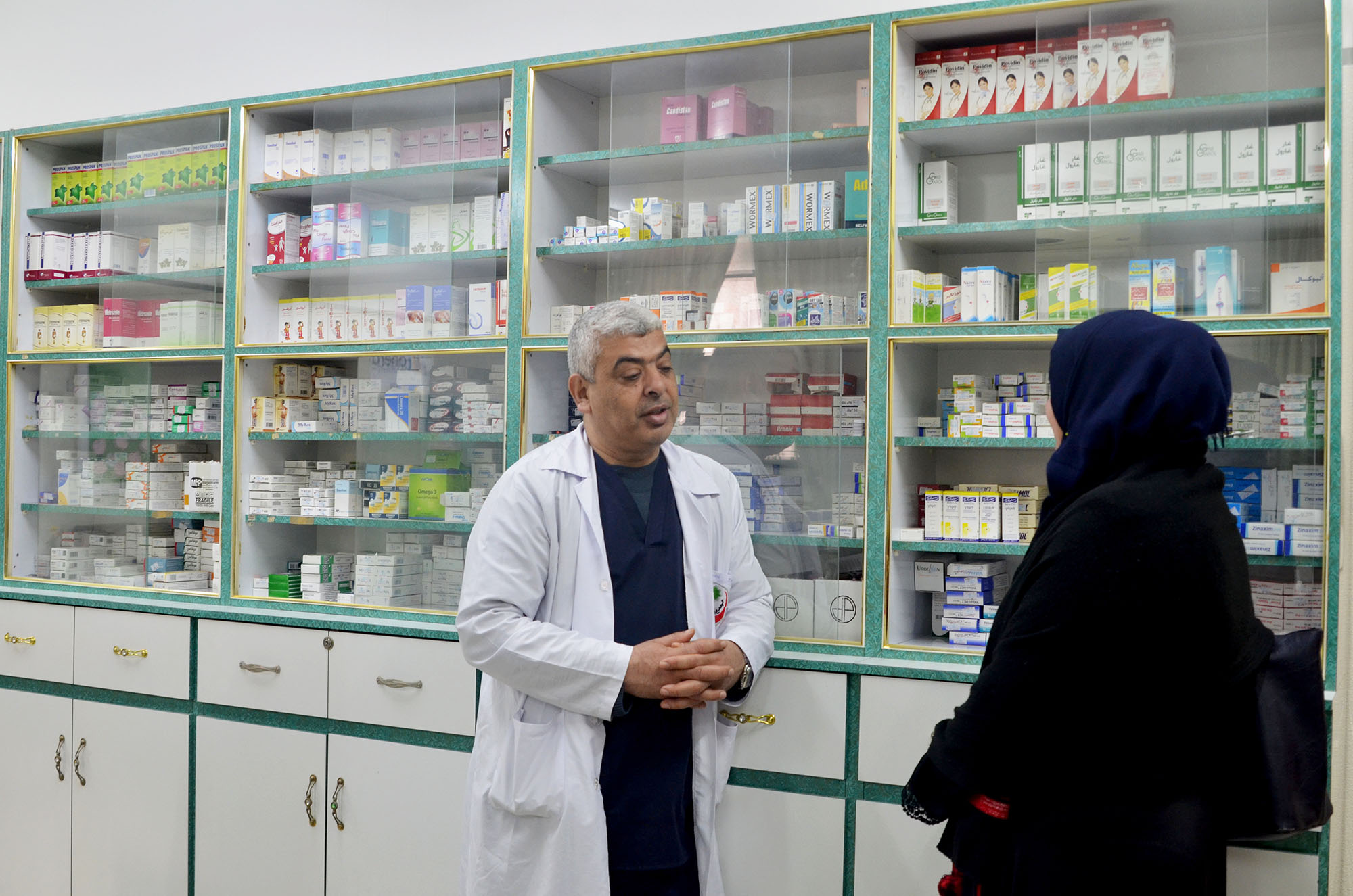photo: Hind Abu Jahal, a pharmacist at Al Sahaba, talks to a patient.
by Anera.org / Gaza/ PNN
Al Sahaba medical complex in Gaza City specializes in offering medical services to women at reproductive age and beyond. “Most of our patients need constant follow-up and check-ups to monitor the status of their fetus throughout the course of their pregnancy,” says Dr. Ziyad Siam, an obstetrician at Al Sahaba.
Providing proper maternity services in Gaza can present challenges. Dr. Siam points out that the Palestinian territory suffers from continual shortages of medicines and medical supplies. Should complications arise during pregnancy, patients have great difficulty in getting permits to access medical treatment outside of Gaza.
Women in Gaza rely heavily on Al Sahaba, where a large percentage of staff are women. Given the conservative culture of many communities in the area, having access to female medical practitioners is vitally important.
Staff are available to offer counseling and treatment around the clock. One patient comments, “I am more confident about sharing my symptoms with doctors at this center. And I feel that I have the privacy I need to speak freely.”
Heparin is An Essential Drug in Gaza
Esmat, one of the clinic’s patients, suffered two miscarriages before learning that she has a blood-clotting disorder.
“When I first found out [about my condition] I was four weeks pregnant. After the diagnosis I underwent tests and the doctor put me on heparin for the remainder of the pregnancy,” she said.
Heparin is widely used to prevent blood clots and associated complications of pregnancy. As Dr. Siam explains, “The risk is that when a clot forms it can get lodged in the umbilical cord, cutting off blood circulation to the baby. The medication thins out the blood and prevents any clots from forming.”
The donated medicine is made available at no charge to patients at Al Sahaba. Clinic pharmacist Hind Abu Jahal underscores to patients the importance of compliance with the instructed dose of heparin to ensure mother and child safety. Abu Jahal notes that heparin is typically unaffordable for all but a few in Gaza.
Most of the clinic’s patients come from the Al Shati refugee camp and surrounding areas. The “economic situation is tough in Gaza, let alone in the refugee camps where unemployment is probably higher than anywhere else,” Hind comments.
“I am so excited for the baby,” Esmat says cheerfully. “I am due five months from today!”
Human Interest 02/20/19 ANC Youth League Affirms Support For BDS



